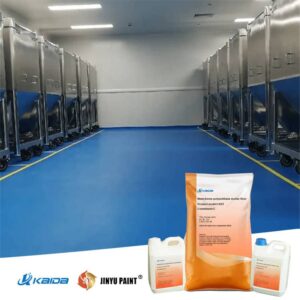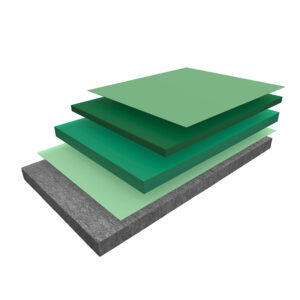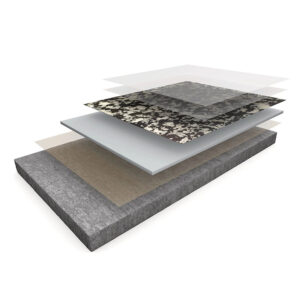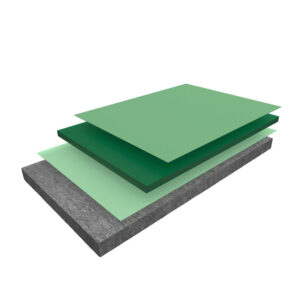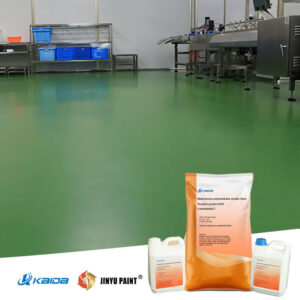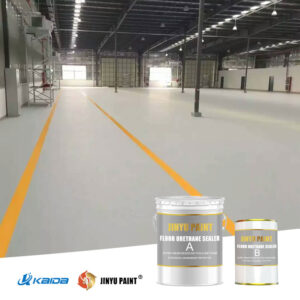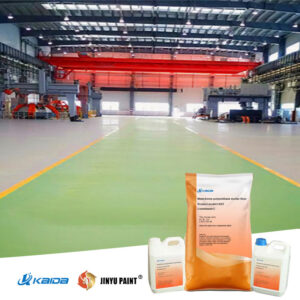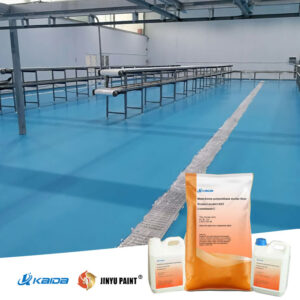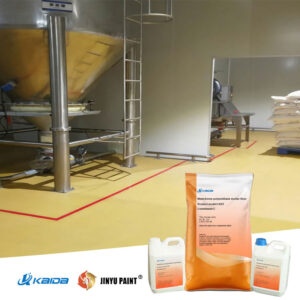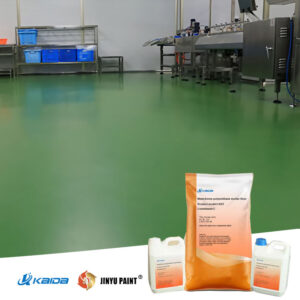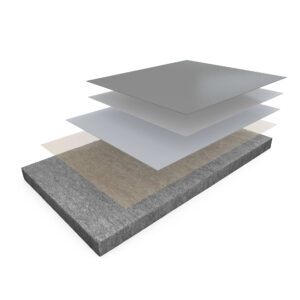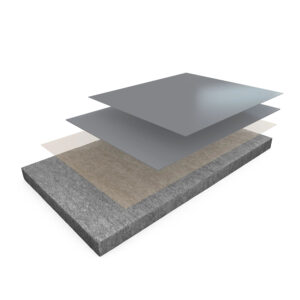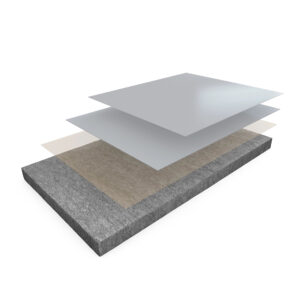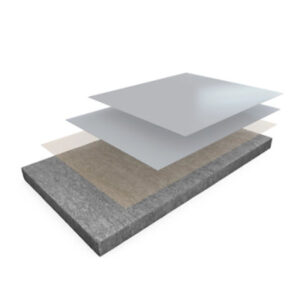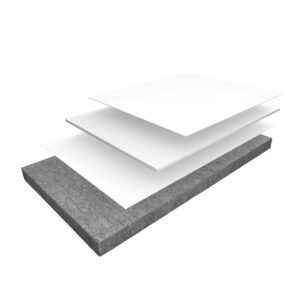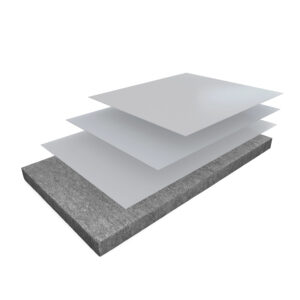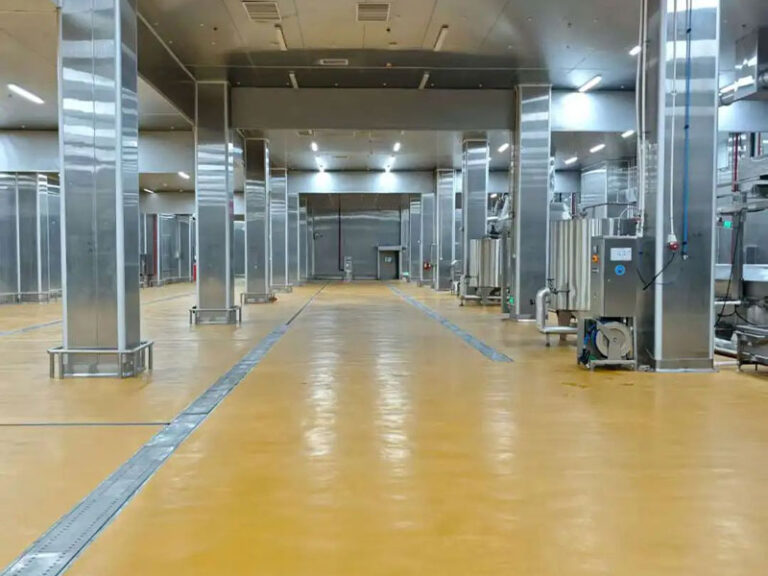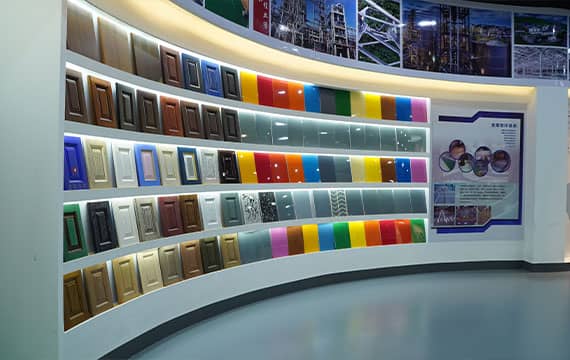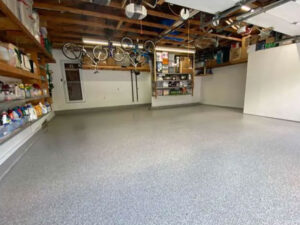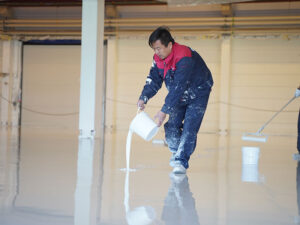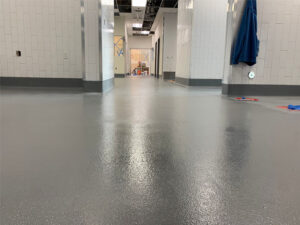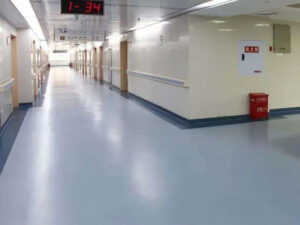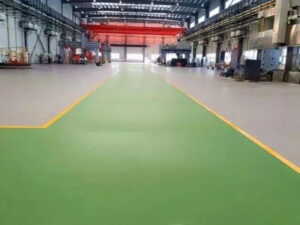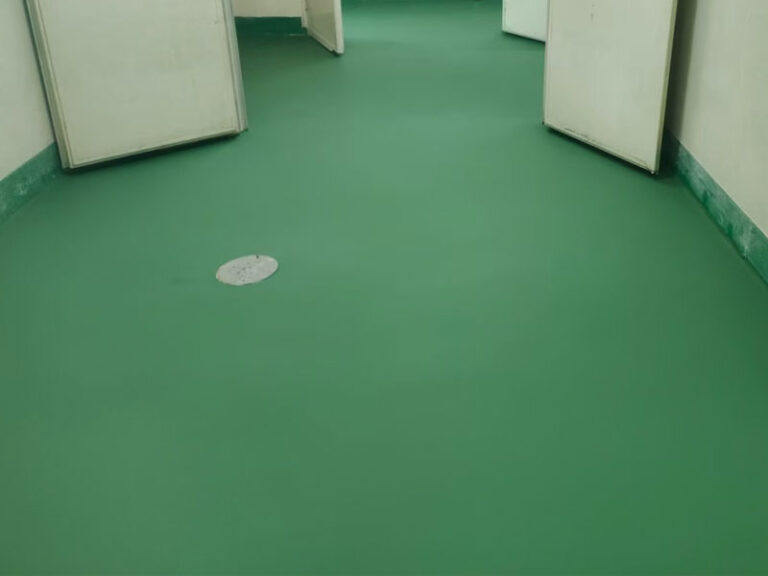
KAIDA PAINT®
JINYU PAINT® Produttore
- Casa
- Chi siamo
- Prodotti
- Industria
- Vernice ignifuga
- Soluzioni per la pavimentazione
- Pavimento epossidico a base d'acqua
- Pavimento epossidico senza solventi
- Pavimento in poliuretano ultra resistente all'usura
- Pavimento in sabbia colorata epossidica
- Pavimento in malta di poliuretano
- Pavimento epossidico antisdrucciolo in buccia d'arancia
- Pavimento epossidico antistatico
- Pavimento in resina artistica
- Pavimento in calcestruzzo sigillato e indurito
- Pavimenti industriali
- Risorse
- Progetti
- Contatto
JINYU PAINT® Rivestimento per pavimenti in poliuretano
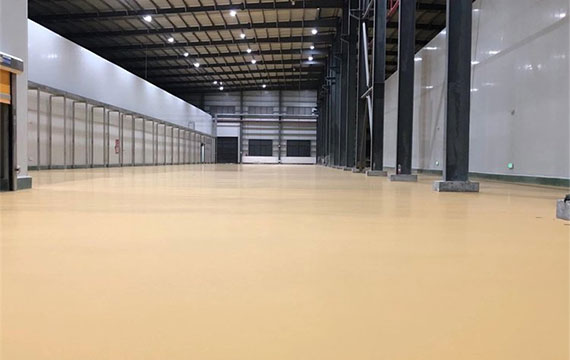
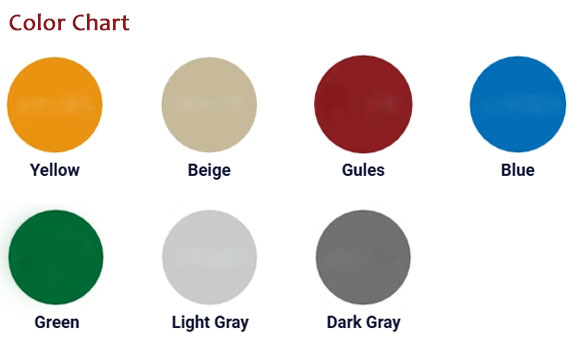
PRODOTTI PER PAVIMENTI IN POLIURETANO JINYU PAINT®
Visualizzazione di 1-16 di 23 risultati
-

Vernice per pavimenti in calcestruzzo antisdrucciolo autolivellante anticorrosiva portante in poliuretano
Per saperne di più -

Sistema di pavimentazione uretanica FlexTop™ Comfort SL
Per saperne di più -

FlexTop™ RXC Urethane Flooring System
Per saperne di più -

FlexTop™ SL Urethane Flooring System
Per saperne di più -

JINYU PAINT® MF Sistema di pavimentazione a massetto in PU autolivellante
Per saperne di più -

Finitura in PU resistente all'abrasione JINYU® DT
Per saperne di più -

Rivestimento per pavimenti uretanico per impieghi gravosi JINYU® HD
Per saperne di più -

Vernice poliuretanica JINYU® MF 4-6 mm per pavimenti in calcestruzzo
Per saperne di più -

JINYU® SL Rivestimento autolivellante a base di uretano per pavimenti Finitura semilucida
Per saperne di più -

JINYU® UD 9-12 mm vernice poliuretanica antiscivolo per pavimenti in calcestruzzo
Per saperne di più -

Polypro™ Advanced NMP Performance EV Urethane Flooring System
Per saperne di più -

Sistema di pavimentazione uretanica Polypro™ NMP Performance EV
Per saperne di più -

Sistema di pavimentazione uretanica Polypro™ Performance HPS
Per saperne di più -

Sistema di pavimentazione uretanica Polypro™ Performance HTS
Per saperne di più -

Polypro™ XT Topcoat AC Urethane Flooring System
Per saperne di più -

Polypro™ XT Topcoat TX Urethane Flooring System
Per saperne di più
Vantaggi dei rivestimenti per pavimenti in poliuretano (Pu Flooring)
I rivestimenti per pavimenti in poliuretano (uretano) sono una soluzione di pavimentazione ad alte prestazioni ampiamente utilizzata in applicazioni industriali, commerciali e residenziali grazie alla loro superiore durata, flessibilità ed estetica.
1. Eccezionale resistenza all'usura
- Alta adesione a diversi substrati (calcestruzzo, epossidico, piastrelle, ecc.).
- Meccanicamente robusto-Resistente all'abrasione, agli urti e ai carichi pesanti.
- Prestazioni testate: Resiste alla caduta di una sfera d'acciaio di 500 g da 100 cm senza incrinarsi o staccarsi.
- Resistenza chimica e alla corrosione-Ideale per fabbriche, magazzini e impianti chimici
2. Eccellente personalizzazione (versatilità)
- Ampia scelta di colori-Personalizzabile per adattarsi alle esigenze di branding o di design
- Spessore regolabile (sottili strati decorativi o spessi strati industriali)
- Opzioni funzionali: Antistatico, antiscivolo, ignifugo, conduttivo, ecc.
3. Traspirabilità (controllo dell'umidità)
- I rivestimenti PU a base d'acqua consentono la trasmissione del vapore-Impedisce la formazione di bolle e la delaminazione
- Blocca l'umidità esterna-Ideale per ambienti umidi (impianti alimentari, scantinati, piscine)
4. Installazione facile e veloce
- Diluibile all'acqua-Facile applicazione e pulizia
- Polimerizzazione rapida: Pedonabile in 24 ore, completamente portante in 7 giorni
- A basso contenuto di VOC ed ecologico-Conforme agli standard di bioedilizia
5. Estetica e finitura perfetta
- Opzioni lucido/opaco/semilucido-Migliora il fascino visivo
- Senza cuciture e non poroso-Impedisce l'accumulo di polvere (ideale per ospedali, laboratori)
- Colori resistenti ai raggi UV-Non si sbiadisce nel tempo
6. Manutenzione e riparazione facili<
- Superficie liscia-Facile da pulire (acqua e detergenti delicati)
- Riparabile-Correzioni localizzate senza rivestimenti completi
- Resistente alle macchie e agli agenti chimici-Riduce i costi a lungo termine
7. Lunga durata ed estrema resistenza
- Oltre 20 anni di vita utile-Dura più dell'epossidico e del calcestruzzo tradizionale
- Resiste da -60°C a 120°C-Perfetto per congelatori, impianti alimentari e per l'uso all'aperto.
- Rinforza i pavimenti in calcestruzzo-Impedisce la formazione di crepe e di polvere
Pavimentazione in poliuretano Applicazione industriale
Epossidico o poliuretanico?
I pavimenti in poliuretano rappresentano un'alternativa superiore all'epossidico in molti ambienti industriali esigenti, in quanto offrono una maggiore flessibilità, una migliore stabilità ai raggi UV e una maggiore resistenza agli shock termici e all'abrasione. Mentre i rivestimenti epossidici offrono un'eccellente adesione e resistenza chimica, il poliuretano supera gli ambienti che richiedono maggiore elasticità e resistenza agli agenti atmosferici. I principali scenari applicativi includono:
- Magazzini e centri logistici
A differenza dell'epossidico, il poliuretano mantiene la flessibilità anche in caso di forti impatti, evitando crepe e scheggiature dovute al continuo traffico di carrelli elevatori. La sua superiore resistenza all'abrasione garantisce una maggiore durata nelle aree ad alto traffico. - Impianti di lavorazione di alimenti e bevande
Il poliuretano offre una migliore resistenza agli shock termici rispetto all'epossidico in caso di frequenti lavaggi a caldo, evitando la formazione di bolle o spellature. Inoltre, offre una maggiore resistenza allo scivolamento in condizioni di bagnato. - Strutture farmaceutiche e camere bianche
Sebbene entrambi offrano superfici prive di giunture, il poliuretano presenta una migliore resistenza all'esposizione chimica ripetuta e mantiene il suo aspetto senza ingiallire o degradarsi sotto le luci di sterilizzazione UV. - Strutture automobilistiche e aerospaziali
Rispetto all'epossidico, il poliuretano dimostra una maggiore resistenza ai carburanti per aerei, ai fluidi idraulici e alle temperature estreme, senza ammorbidirsi o diventare fragile. - Impianti di produzione e assemblaggio
I pavimenti in poliuretano superano quelli epossidici in ambienti con notevoli variazioni di temperatura grazie alla loro superiore capacità di ciclare termicamente e alla ridotta sensibilità all'umidità durante la posa. - Celle frigorifere e congelatori
A differenza dell'epossidico, che può diventare fragile e rompersi in condizioni di temperatura inferiore allo zero, il poliuretano mantiene la sua flessibilità e resistenza agli urti, assicurando la durata in ambienti gelidi.I pavimenti in poliuretano combinano un'avanzata resistenza meccanica con la resistenza chimica e ambientale, rendendoli una scelta più durevole e adattabile rispetto all'epossidico per le moderne strutture industriali che devono affrontare condizioni operative dinamiche.
Tipi comuni di rivestimenti per pavimenti in poliuretano (PU)
I rivestimenti per pavimenti in poliuretano sono altamente versatili e possono essere personalizzati per diverse applicazioni. Di seguito sono riportate le classificazioni più comuni, insieme alle loro caratteristiche e utilizzi chiave
① Rivestimento poliuretanico lucido/opaco a base acqua per pavimenti
- Tipi: Finiture lucide, opache e semi-opache
- Applicazioni: Pavimenti industriali, ospedali, vagoni della metropolitana, biblioteche e spazi commerciali.
- Vantaggi: Elimina la necessità di passare la cera e la lucidatura, mantenendo una lucentezza duratura.
② Rivestimento per pavimenti in poliuretano ultra resistente all'usura
- Caratteristiche: Alta densità, estrema durezza, resistenza ai graffi e all'abrasione
- Applicazioni: Officine meccaniche, parcheggi, campi sportivi, magazzini
- Vantaggi: Sopporta macchinari pesanti, carrelli elevatori e un elevato traffico pedonale.
③ Rivestimento per pavimenti in poliuretano ad asciugatura rapida
- Tipi: Polimerizzazione rapida a bassa temperatura, polimerizzazione rapida a temperatura ambiente
- Applicazioni: Costruzione invernale, riparazioni rapide, marcatura delle linee
- Vantaggi: Riduce i tempi di inattività, ideale per progetti sensibili al fattore tempo
④ Rivestimento decorativo per pavimenti in poliuretano
- Caratteristiche: Colori vivaci, opzioni decorative di scaglie/quarzo, elevata estetica
- Applicazioni: Ospedali, scuole, centri commerciali, uffici
- Vantaggi: Combina bellezza + durata, facile da pulire
Rivestimento per pavimenti in PU resistente alle alte e basse temperature
- Prestazioni: Stabile da -40°C a 120°C
- Applicazioni: Impianti di trasformazione alimentare, celle frigorifere, congelatori
- Vantaggi: Non si crepa a temperature estreme, conforme alla FDA
Pavimentazione in poliuretano per campi sportivi e da gioco
- Caratteristiche: Eccellente assorbimento degli urti, riduzione del rumore, elasticità
- Applicazioni: Campi da tennis, piste da corsa, palestre
- Vantaggi: Riduce l'affaticamento, resistente allo scivolamento, stabile ai raggi UV
⑦ Rivestimento in PU di parchi e strade comunali (pavimentazione colorata antiscivolo)
- Caratteristiche: Senza solventiantiscivolo, riduzione del rumore, colori vivaci
- Applicazioni: Parchi, percorsi pedonali, piazze, parcheggi all'aperto
- Vantaggi: Resistente alle intemperie, mantenimento del colore a lunga durata
⑧ Rivestimento in PU resistente alle intemperie per stand e piscine all'aperto
- Caratteristiche: Resistente ai raggi UV, impermeabile, resistente agli agenti chimici (cloro/acqua salata)
- Applicazioni: Posti a sedere negli stadi, piscine, parchi acquatici
- Vantaggi: Non sbiadisce, forte adesione, antimuffa
Domande frequenti (FAQ):
D1: Qual è la principale differenza tra i rivestimenti per pavimenti epossidici e poliuretanici?
Questa è una delle domande più ricercate a livello globale.
A: Pur essendo entrambi rivestimenti ad alte prestazioni, svolgono funzioni primarie diverse. I rivestimenti epossidici sono rinomati per l'eccezionale adesione, la durata e la resistenza al carico, che li rendono un rivestimento di base ideale. I rivestimenti poliuretanici sono apprezzati per la loro superiore stabilità ai raggi UV, la resistenza chimica e all'abrasione. Sono anche più flessibili e forniscono una finitura più liscia, spesso lucida. I sistemi migliori spesso combinano entrambi: uno strato di base epossidico per la resistenza e uno strato di finitura poliuretanico per la protezione e l'estetica.
D2: I pavimenti in poliuretano sono resistenti agli agenti chimici e alle macchie?
Termini di ricerca: "rivestimento per pavimenti resistente alle sostanze chimiche", "pavimento antiacido".
A: Sì, l'eccellente resistenza è una delle ragioni principali della loro popolarità. I rivestimenti in poliuretano formano una superficie non porosa e senza giunture, altamente resistente a un'ampia gamma di sostanze chimiche, tra cui oli, grassi, carburanti, solventi e molti acidi e alcali. Questo li rende la scelta migliore per gli impianti di produzione di alimenti e bevande, le officine automobilistiche, i laboratori e le strutture farmaceutiche dove le fuoriuscite sono frequenti.
D3: Un rivestimento in poliuretano può ingiallire o sbiadire alla luce diretta del sole?
Termini di ricerca: "Pavimento del garage resistente ai raggi UV", "Rivestimento del pavimento ingiallito".
A: A differenza dei rivestimenti epossidici standard, che possono sfarinare e ingiallire con l'esposizione ai raggi UV, i rivestimenti poliuretanici alifatici sono specificamente formulati con una stabilità superiore ai raggi UV. Sono progettati per mantenere il colore e la brillantezza per anni, anche in presenza di luce solare diretta. Questo li rende perfetti per gli hangar degli aerei, i magazzini con lucernari, i patii e i balconi esterni.
D4: Quanto dura un rivestimento per pavimenti in poliuretano?
Termini di ricerca: "Durata del pavimento in poliuretano", "Quanto dura il rivestimento del pavimento del garage".
A: La durata dipende in larga misura dalla preparazione della superficie, dalla qualità dell'installazione e dai livelli di traffico. Una finitura poliuretanica applicata a regola d'arte su un sistema epossidico può durare 10-20 anni in ambienti industriali o commerciali. In aree ad alto traffico, come i magazzini, può essere necessario un ritocco ogni 5-10 anni. Una corretta manutenzione è fondamentale per massimizzarne la durata.
D5: Un pavimento in poliuretano è scivoloso? È resistente allo scivolamento?
Termini di ricerca: "pavimento antiscivolo per garage", "pavimentazione industriale antiscivolo".
A: Una finitura poliuretanica lucida standard può essere scivolosa quando è bagnata. Tuttavia, gli additivi antiscivolo (come la graniglia polimerica o la sabbia di quarzo) possono essere facilmente distribuiti nel rivestimento bagnato per creare una superficie strutturata e antiscivolo. Si tratta di una caratteristica di sicurezza fondamentale per aree come le cucine commerciali, i ponti delle piscine e gli impianti di produzione.
D6: Posso applicare il rivestimento in poliuretano da solo o ho bisogno di un professionista?
Termini di ricerca: "Kit per pavimenti poliuretanici fai da te", "Rivestimento professionale per pavimenti".
A: Sebbene siano disponibili kit fai-da-te, ottenere un risultato duraturo e di livello professionale è estremamente impegnativo. L'applicazione corretta richiede una preparazione meticolosa della superficie (che spesso include la levigatura al diamante), un controllo rigoroso dell'umidità e della temperatura e tecniche di miscelazione e applicazione esperte**. Per qualsiasi applicazione commerciale, industriale o in garage, consigliamo vivamente di rivolgersi a un installatore professionista certificato.
D7: Quali sono i tempi di indurimento e di fermo macchina tipici di un pavimento in poliuretano?
Termini di ricerca: "Tempo di polimerizzazione del rivestimento del pavimento", "Quanto tempo prima posso guidare sul pavimento del garage".
A: I rivestimenti poliuretanici si asciugano al tatto in 4-8 ore. Il traffico pedonale leggero è solitamente possibile in 12-24 ore. Tuttavia, l'indurimento completo (raggiungimento delle massime proprietà chimiche e meccaniche) può richiedere 3-7 giorni. In genere si consiglia di attendere almeno 72 ore prima di spostare attrezzature pesanti o parcheggiare veicoli sulla superficie. Seguire sempre le indicazioni specifiche del produttore.
D8: È possibile applicare il poliuretano su un pavimento epossidico esistente?
Termini di ricerca: "rivestire un vecchio pavimento epossidico", "rivestimento poliuretanico".
A: Assolutamente sì. È una pratica molto comune e consigliata per ringiovanire un pavimento epossidico vecchio, usurato o ingiallito. L'epossidico esistente deve essere adeguatamente pulito, leggermente abraso (ad esempio, granigliato o diamantato) e sgrassato per garantire una forte adesione al nuovo strato di finitura poliuretanico.
D9: Quale manutenzione è necessaria per un pavimento in poliuretano?
Termini di ricerca: "come pulire un pavimento in poliuretano", "manutenzione di un pavimento industriale".
A: La manutenzione è semplice. La spazzatura o la pulizia regolare della polvere rimuove i detriti abrasivi. Per la pulizia, utilizzare un detergente a pH neutro e una spazzola a setole morbide o una spazzola automatica. Evitare detergenti acidi o alcalini aggressivi, perché possono degradare la superficie nel tempo, nonostante la sua elevata resistenza. È sempre consigliabile pulire immediatamente le fuoriuscite.
Q10: Per quali tipi di ambienti sono più adatti i rivestimenti in poliuretano?
Termini di ricerca: "miglior rivestimento per il pavimento di una fabbrica alimentare", "rivestimento del pavimento del garage per il clima freddo".
A: Grazie alla loro combinazione di proprietà, i rivestimenti poliuretanici sono la scelta preferenziale per:
- Lavorazione di alimenti e bevande: Conformi alle norme USDA e FDA, facili da pulire, resistenti agli agenti chimici.
- Automotive e aerospaziale: Resistente ai fluidi idraulici, al carburante per aerei e alla raccolta di pneumatici caldi.
- Magazzini e logistica: Resiste al traffico pesante di piedi e carrelli elevatori senza usurarsi.
- Commerciale e al dettaglio: Estetica lucida per showroom e spazi pubblici.
- All'aperto: Stabilità ai raggi UV per le aree esposte alla luce solare.
KAIDA JINYU PAINT Progetti di rivestimento uretanico
Come vengono prodotte le vernici JINYU?
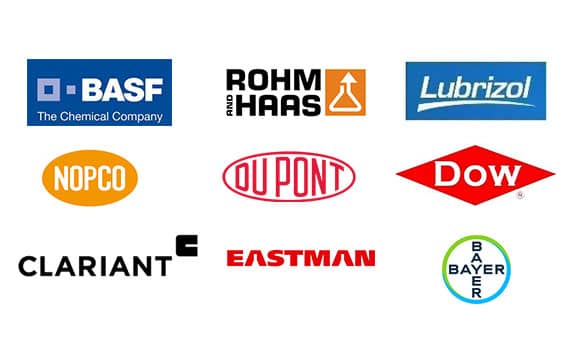
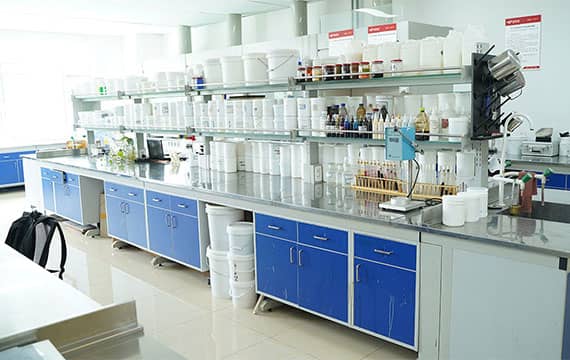
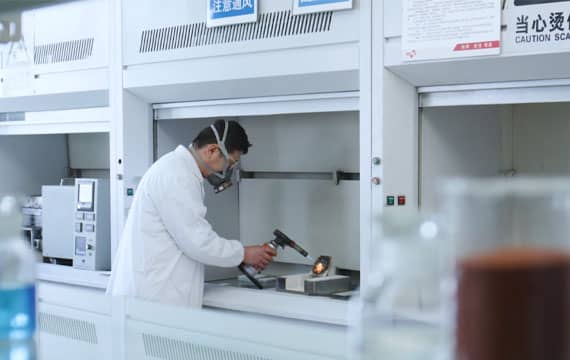
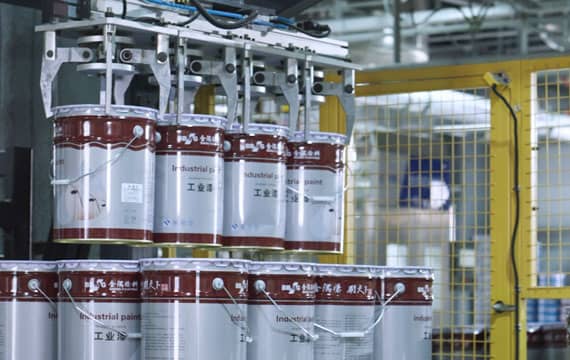
JINYU® vanta un'ampia gamma di opzioni cromatiche e possibilità di personalizzazione. Gli esperti del colore lavorano a stretto contatto con i clienti per creare tonalità e finiture uniche, adatte ai loro progetti specifici.


Le applicazioni di JINYU PAINT® in primo piano
JINYU PAINT® offre una gamma completa di rivestimenti ad alte prestazioni, tra cui rivestimenti epossidici per pavimenti, rivestimenti industriali, rivestimenti ignifughi e rivestimenti architettonici per pareti interne ed esterne. Le nostre soluzioni sono progettate per garantire durata, estetica e protezione in diverse applicazioni, dagli edifici residenziali e commerciali alle strutture industriali e ai progetti di sicurezza antincendio. Che si tratti di pavimenti senza giunzioni, resistenza alla corrosione, protezione antincendio o finiture decorative per pareti, JINYU PAINT® offre rivestimenti esperti per migliorare e proteggere ogni superficie.










Le ultime domande sulla JINYU PAINT
FAQ
- Come prevenire i danni da shock termico nei pavimenti per la lavorazione degli alimenti: La soluzione del calcestruzzo uretanico
- 7 strategie di esperti per prolungare la durata della pavimentazione in poliuretano nelle aree ad alto traffico
- Come riparare i pavimenti in poliuretano scrostati o delaminati: Una guida definitiva alla riparazione
- Quali sono le migliori pratiche per l'installazione di una pavimentazione in poliuretano in una camera bianca farmaceutica?
- Qual è il tipo di pavimentazione migliore per i magazzini logistici con traffico di carrelli elevatori?
Contatto
Contatto: Signora Sabella Wei
Telefono: 86-022-83859963
Whatsapp: 15822925523
